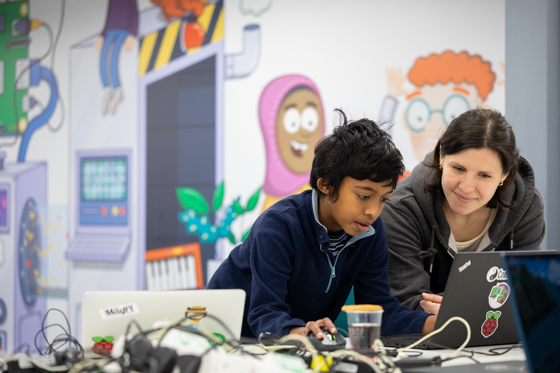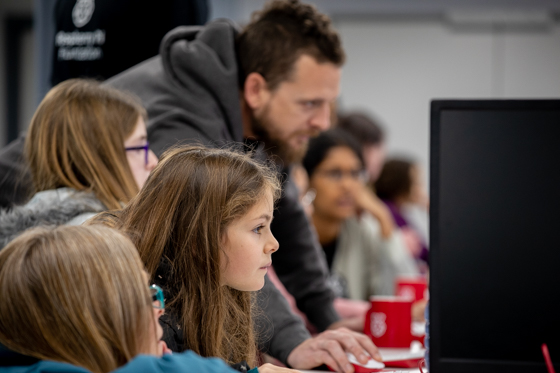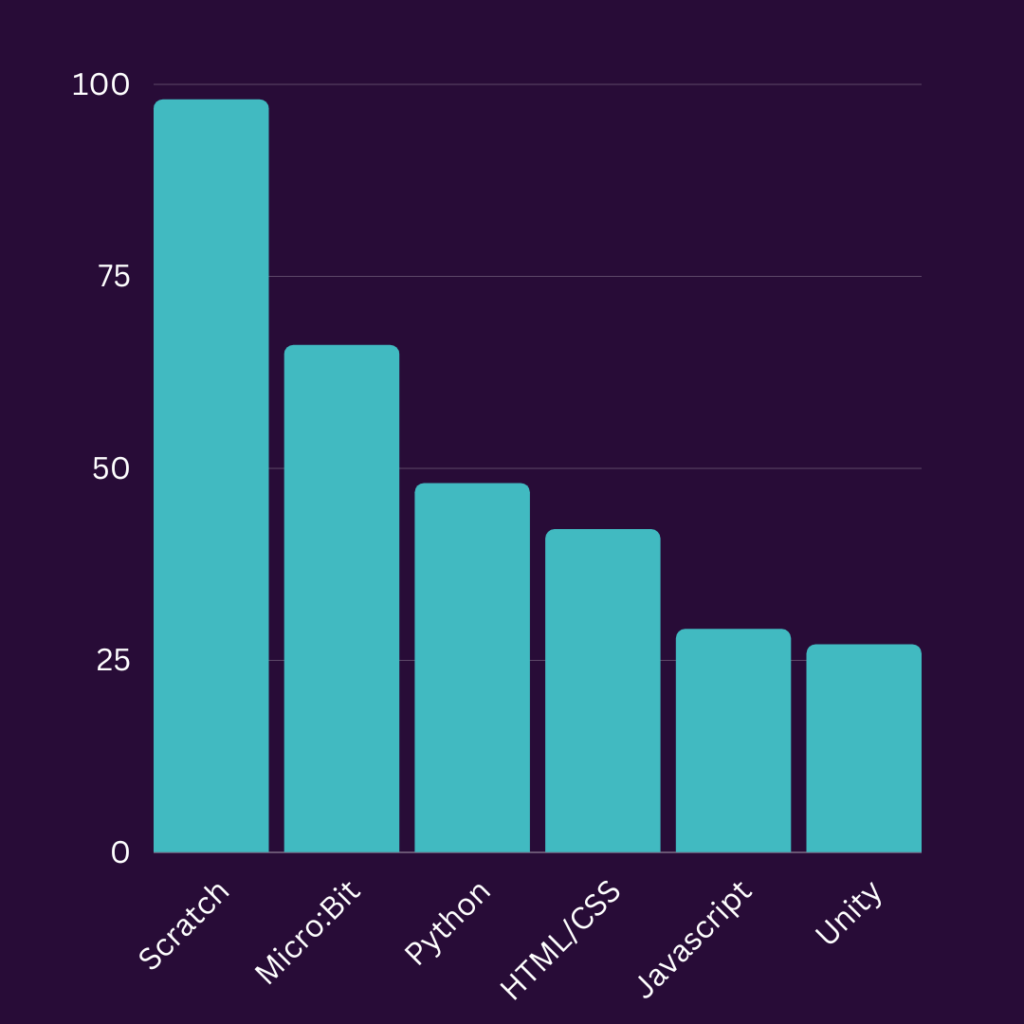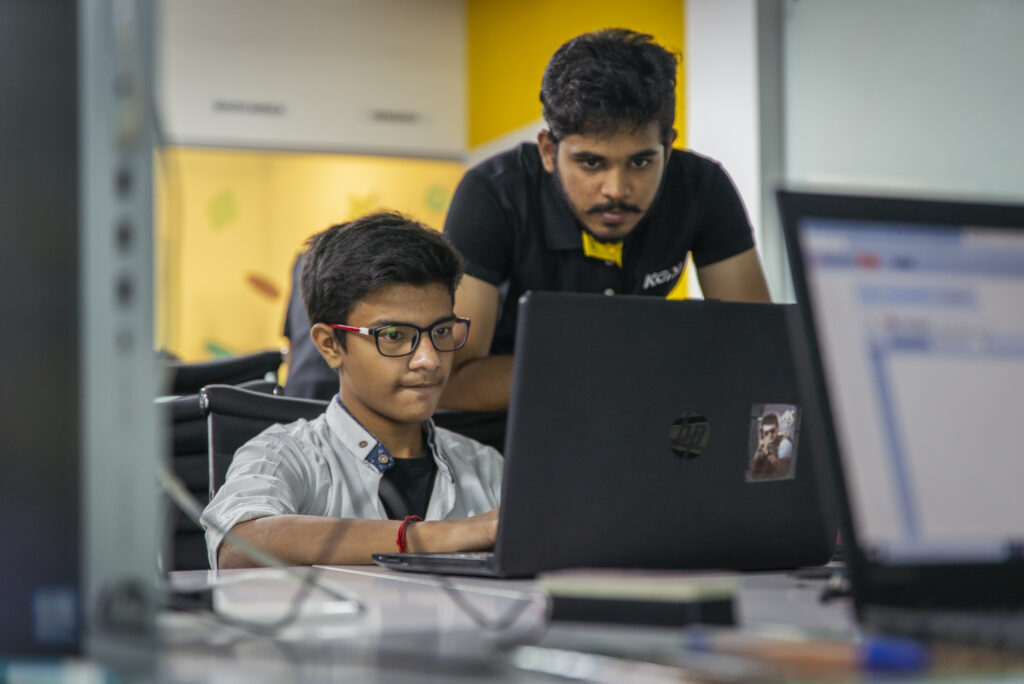
27th June 2023
Key findings from our Annual Survey
As we reflect on the results of this year’s annual survey, we recognise the incredible impact that those involved in CoderDojo have had. Below you will find some key findings from our annual survey. Thank you to everyone who filled in the survey so we could share these results.
1. Venues where Dojos are running
The top six countries that champions responded from were Japan, the UK, Italy, Ireland, the Netherlands, and Belgium. In total we had responses from 29 different countries! Most CoderDojos are run in public community spaces (32%) or libraries (19%). Other popular venues where Dojos held sessions were schools (13%) and office spaces (11%).

2. The professional background of clubs leaders
On average, 64% of respondents worked in STEM-related industries or roles. Italy, the Netherlands, Belgium, and Romania had higher proportions of those working in STEM (at least 70%). In Japan, librarians and library staff made up a high proportion of champions at 34%. A high number of champions in Belgium were parents or guardians of participants, at 44%.
3. The gender breakdown of club leaders differs by country
Of the Dojo champions who responded to the survey, 73% identified as male, 24% identified as female, while 3% preferred not to say or identified as another gender identity. This highlights the continued work we need to do to support more women leading in computing spaces.

The gender breakdown of champions varied greatly by country, with 60% of club leaders in Romania identifying as female, 40% of those in the Netherlands, 22% of champions in Ireland, and 12% of club leaders in Japan identifying as female. Almost a quarter of all survey responses were sent in by CoderDojo volunteers in Japan. 86% of these volunteers were male. This contributes to the overall CoderDojo volunteer gender breakdown numbers being heavily skewed towards males.
4. Internet access
Of those who responded to our survey, 83% reported having a reliable or fast internet connection at every session. While 17% reported having slow (13%) or no internet access (3%) at their sessions. While our project resources are best used online, we do have printable project resources available.

5. Volunteers running clubs, and youth mentors
Almost half of Dojos have five or more adult volunteers — more than in 2022. The average number per club in 2023 was 4.5. In 2022, this figure was 4. Over 50% of respondents said that their Dojos had one or more under-18s volunteering. While there was little variation between countries, a higher proportion of Dojos in the Netherlands and Belgium reported having under-18 helpers (64% and 69% respectively).
Nearly four-fifths of Dojos said they need one or more additional volunteers. On average, they said their Dojo needed 2.2 volunteers. This is a reduction from 2.5 per Dojo in 2022. See our resources to help those managing clubs recruit volunteers.

About a third of respondents said that one or more volunteers were previously Ninjas at a CoderDojo. Taking into account the overall numbers of adults and under-18 volunteers at each Dojo, this implies that 12% of current CoderDojo volunteers were originally Ninjas.
6. The most common technologies used in Dojos were:
Scratch is the overwhelmingly popular choice when it comes to technologies/platforms being used in clubs, with Micro:bit and Python also being popular choices. In CoderDojos, App Inventor is quite popular in Italy, Belgium, and Romania, while Arduino is very popular in Ireland as well as these three countries.

7. Impact on young people – computing & programming
In terms of the impact participating in a Dojo had on young people, 87% of champions reported that Ninjas’ skills in computing and programming had increased. Additionally, 83% reported that both Ninjas’ interest in, and confidence to learn computing and programming had increased.

Thank you to all those who filled in the survey. As a result of your feedback we are developing more content in the areas you are interested in, including a ‘More Unity’ project path, an ‘Introduction to Micro:bit’ path, as well as working with Google DeepMind to deliver AI learning resources. Your responses help us to better understand the tangible difference CoderDojo clubs have in the lives of young people and enables us to improve the support we offer volunteers.